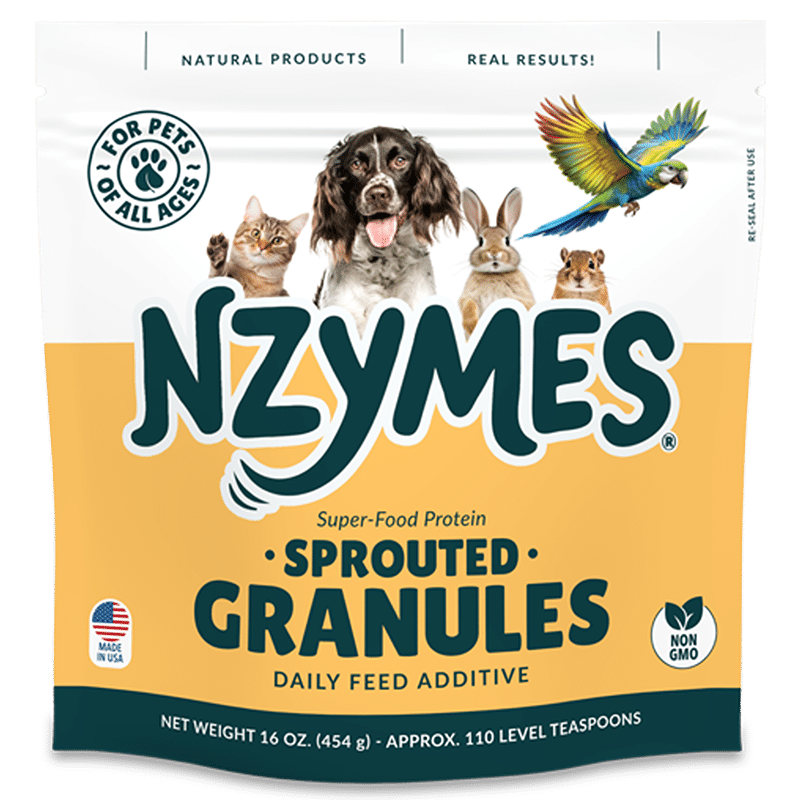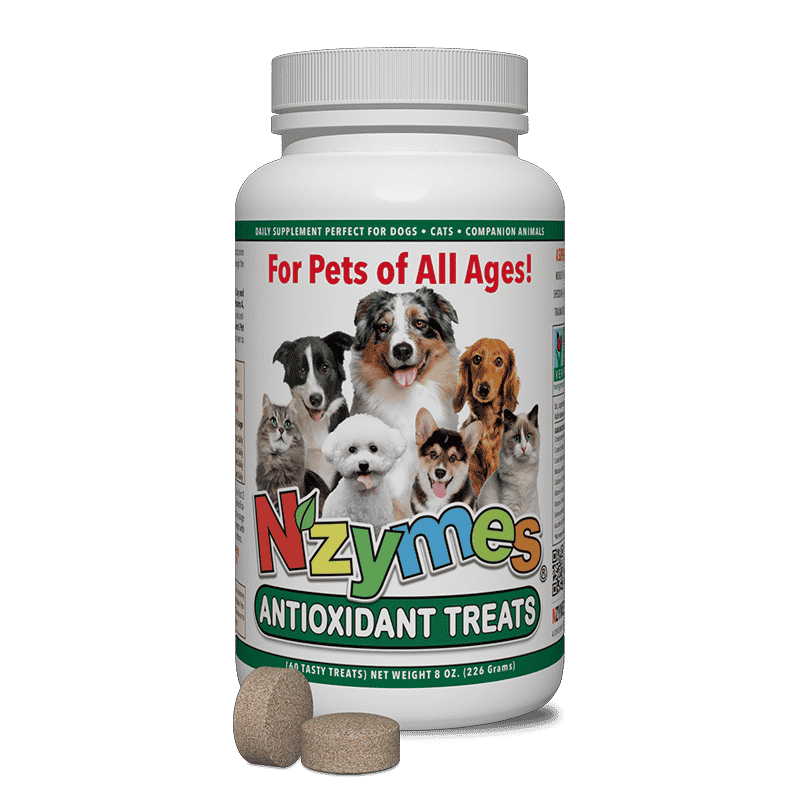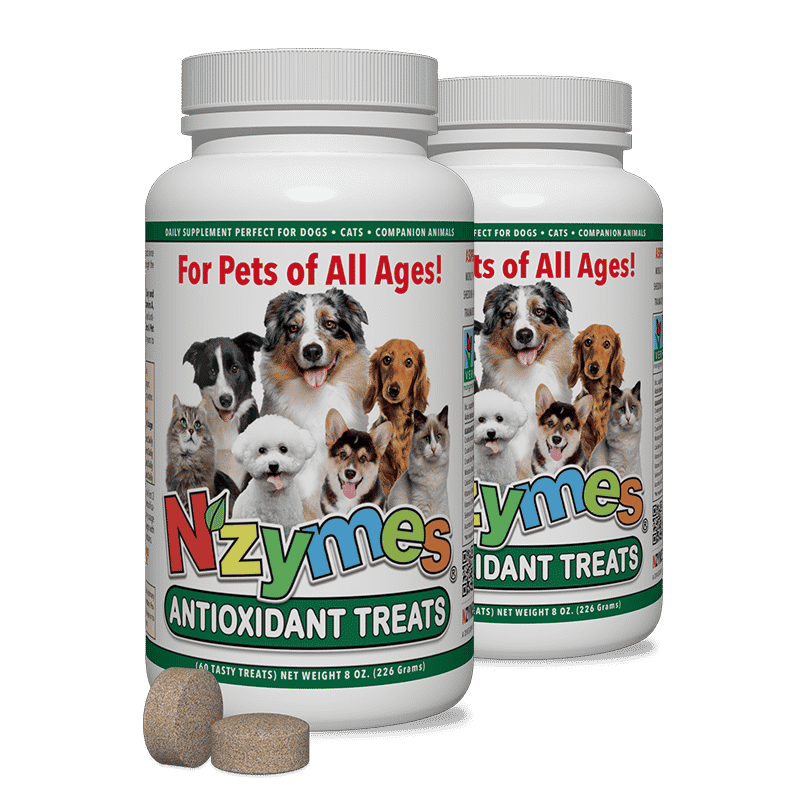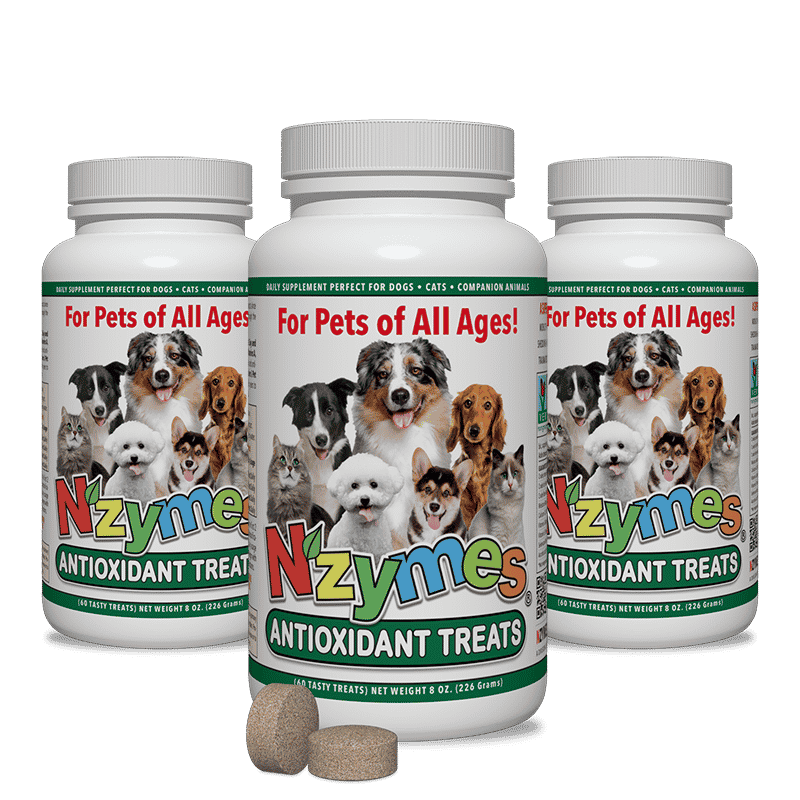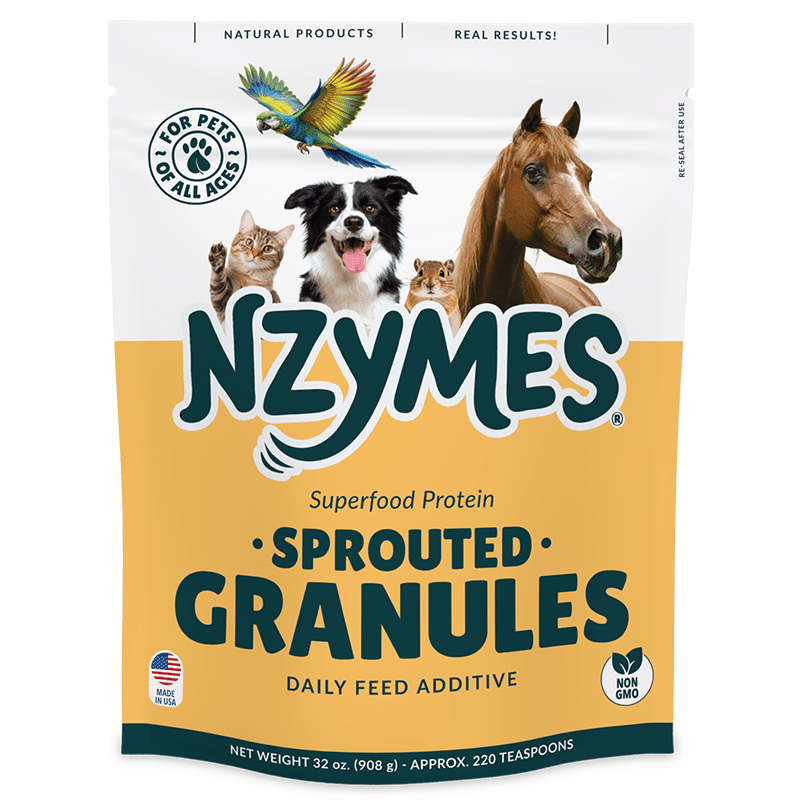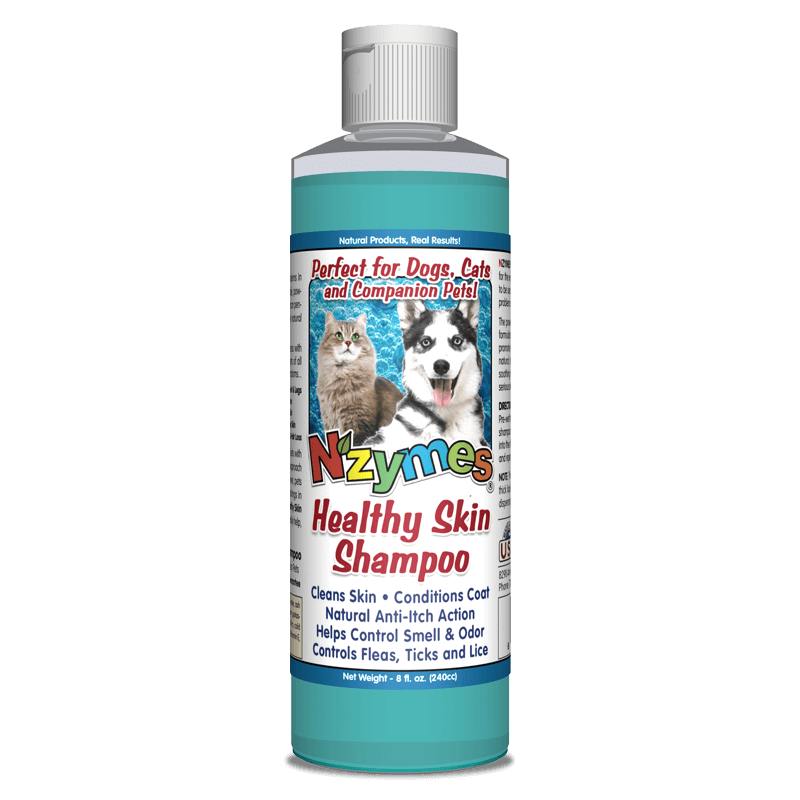Dealing with Dog Joint Problems
Nzymes Overview: Dog Joint Problems & Conditions
Dog joint problems can take many forms and range from minor to severe in pain levels. Since dogs cannot tell us how badly they hurt, we must look for signs.
Signs of Dog Joint Problems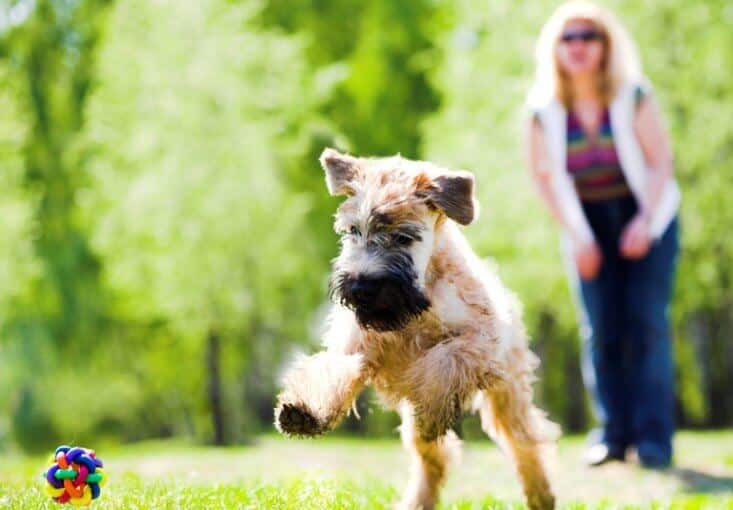
One of the first signs that your dog is experiencing joint pain is when you see a decrease in activities like running or climbing stairs. If your dog is no longer jumping on you when you walk through the door after work or choosing to sleep downstairs when he’s always slept upstairs in your bed, he may be at the first stages of joint problems.
Another common sign of dog joint problems is when they are slow or stiff when getting up and down from a nap. When their joints are tender and sore, these movements will become harder to do, so your dog may just stay lying down.
Check to be sure that the joints are not swollen. (a swollen leg will either feel swishy or very hard to the touch) A quick feel up and down the legs, done regularly, should do the trick.
The most apparent sign of dog joint problems is limping. Check first for injury – something as simple as a thorn in a paw can cause a pronounced limp – but if no injury is found and the limping persists, it is likely your dog is suffering from some type of joint problem.
Main Types of Dog Joint Problems
Non-injury canine joint issues normally fall into one of two categories, degenerative or developmental. Developmental problems, like patella luxation or hip dysplasia, happen when the joints do not develop correctly. If the issue can be resolved (some cannot), it can involve both medicines and/or supplements, physical therapies and sometimes some type of corrective surgery. Degenerative problems – like arthritis – are much more common and can happen for a number of different reasons – many of which can be helped in simple ways.
WebMD on Dog Joint Health here.
Reasons for Dog Joint Problems
Let’s get to the root of the issue and discuss the reasons behind why these joint problems begin in the first place.
It is true that some dog breeds are more susceptible to joint problems. Big dogs really get the bone on this one – and while some developmental issues are more prevalent in large breeds, it’s cliché to think the majority of joint problems are only in big dogs. Joint issues are quite common in all breeds due to over-breeding and bad breeding, but no dog needs to lie down and take it.
The good news is most joint problems can be vastly improved and even corrected with a healthy diet and supplement regimen. Just like people, overweight dogs are going to be more prone to joint issues… more stress on the joint, more potential for injury.
Without a source of live food nutrition (live foods are uncooked foods that contain enzymes), it is common for joints to erode from toxins and free-radical buildup. This causes the degeneration of the synovial packets that hold the joints together. The result of this is pain, inflammation and damage to the cartilage and soft tissues. A source of live food nutrition in a healthy daily diet keeps those free radicals away.
Treatments Options for Dog Joint Problems
Many veterinarians will prescribe steroidal and non-steroidal anti-inflammatory drugs to treat the pain levels for most dog joint problems. You always want to ask your veterinarian about possible side effects before administering any medications to your dog. Do your own research as well – there is a lot of firsthand information available online from other pet owners.
To avoid the possibility of harmful side effects, some vets (and/or doggy parents) will use therapies like acupuncture, chiropractic care and laser treatments on the joint pain. These types of therapies are not always successful, but definitely worth the try if you are trying to avoid drugs.
Supplements like omega 3 fatty acids and some antioxidants have anti-inflammatory effects and can be helpful with the joint pain. Other supplements, like the live food nutrition I spoke of earlier, are given to nourish and repair the joint problems completely.
Just like with people, three things can really help avoid and/or improve joint issues: a regular exercise routine, a natural healthy protein rich diet, and a daily source of live food nutrition.

